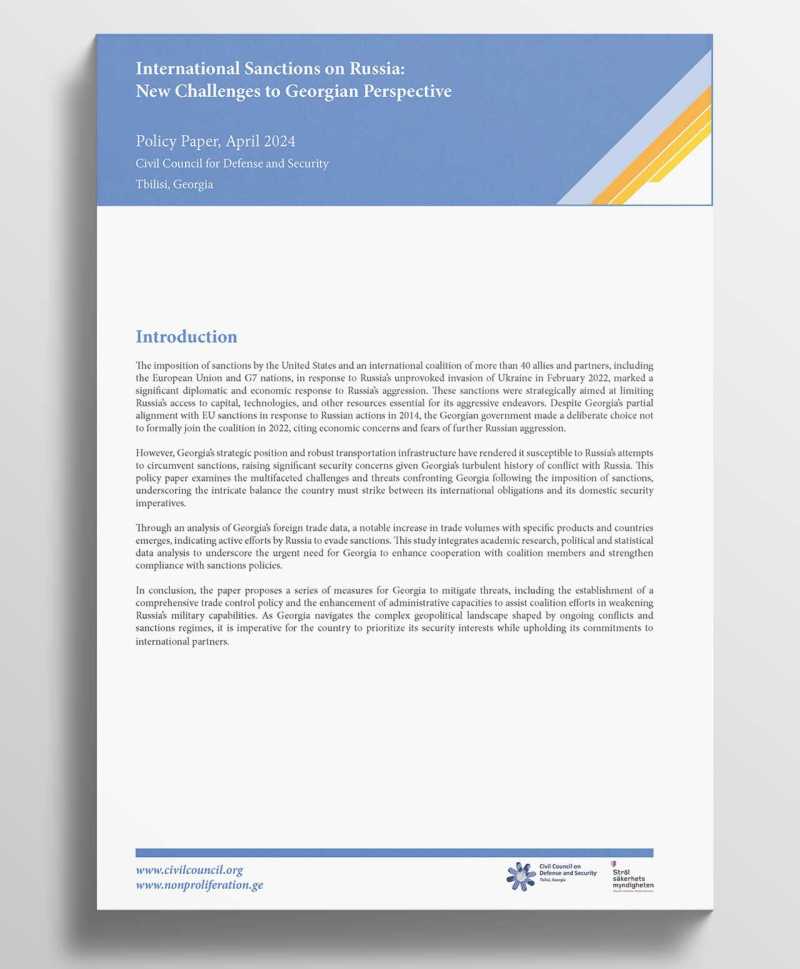The imposition of sanctions by the United States and an international coalition of more than 40 allies and partners, including the European Union and G7 nations, in response to Russia's unprovoked invasion of Ukraine in February 2022, marked a significant diplomatic and economic response to Russia's aggression. These sanctions were strategically aimed at limiting Russia's access to capital, technologies, and other resources essential for its aggressive endeavors, specifically targeted critical revenue-generating sectors, financial institutions, the military supply chains, as well as individuals and entities worldwide, defense procurement networks, including international suppliers supporting Russia’s military-industrial complex for undermining the peace, security, stability, sovereignty, or territorial integrity of Ukraine. In addition, the US imposed visa restrictions for Russian government officials, their family members, Russian and Belarusian military officials etc.
Despite Georgia's historical alignment with EU sanctions in response to Russian annexation of Crimea and Occupation of Eastern Ukrainian territories in 2014, the Georgian government made a deliberate choice not to formally join the coalition in 2022, citing economic concerns and fears of further Russian aggression. However, subsequent statements of the political leaders and high officials from various agencies, including the Georgian National Bank, demonstrated that despite Georgia not joining the sanctions, it could not become a country whose customs territory or financial institutions could be used to evade them. Georgia's strategic position and robust transportation infrastructure have rendered it susceptible to Russia's attempts to circumvent sanctions, raising significant security concerns given Georgia's turbulent history of conflict with Russia.
This policy paper examines the multifaceted challenges and threats confronting Georgia following the imposition of sanctions, underscoring the intricate balance the country must strike between its international obligations and its domestic security imperatives.
Through an analysis of Georgia's foreign trade data, a notable increase in trade volumes with specific products countries emerges, indicating active efforts by Russia to evade sanctions. This study explores emerging challenges for Georgia arising from sanctions policy against Russia and on the basis of the statistical data analysis underscores the urgent need for Georgia to enhance cooperation with coalition members and bolster compliance with sanctions policies.
In conclusion, the paper proposes a series of measures for Georgia to mitigate threats, including the establishment of a comprehensive trade control policy and the enhancement of administrative capacities to assist coalition efforts in weakening Russia's military capabilities. As Georgia navigates the complex geopolitical landscape shaped by ongoing conflicts and sanctions regimes, it is imperative for the country to prioritize its security interests while upholding its commitments to international partners.
Download the Publication in English
Download the Publication in Georgian



